
Dr. Abidullah Ghazi
Birth: 6th July, 1936, Anbehta, Saharanpur (UP)-India
Education: M.A. (AMU Aligarh)-1959
M.Sc. (London school of Economics)-1967
Ph.D. (Harvard University)-1973
Social & Education Services:
i) Director, Iqra International Educational Foundation
(http://www.iqrafoundation.com)
ii) Chairman Board of Trustees, 2005-06
ii) Chairman Board of Trustees, 2005-06
The Federation of Aligarh Alumni Associations (www.aligs.org)
iii) President, National Council of University Students of India-1959
iv) President, AMU Students Union, 1959
v) Honorary Secretary, AMU Students Union, 1954
Advisor to:
Pandit Jawahar Lal Nehru (Prime-Minister of India, 1947-64)
Dr. Rajendra Prasad (President of India, 1950-62)
Dr. Zakir Hussain (President of India, 1967-69)
iii) President, National Council of University Students of India-1959
iv) President, AMU Students Union, 1959
v) Honorary Secretary, AMU Students Union, 1954
Advisor to:
Pandit Jawahar Lal Nehru (Prime-Minister of India, 1947-64)
Dr. Rajendra Prasad (President of India, 1950-62)
Dr. Zakir Hussain (President of India, 1967-69)
Awards:
Citizenship Award (United States of America), 1983
Sanad-e-Imtiyaz for Seeratun-Nabi Program, Pakistan, 1983
Nishaan-e-Imtiyaz for Development of Educational Curriculum,
Pakistan, 1988
Personal Information:
Great-Grandfather : Maulana Abdullah Ansari
(Founding Nazim-e-Diniyat MAO College, Aligarh.
He led the Janaza Prayer of Sir Syed Ahmad Khan)
Father’s name : Mr. Hamidul-Ansari Ghazi (Editor Medina Urdu Newspaper - Bijnor)
Mother’s name: Mr. Maimoona Khatoon
(Daughter of Maulana Qari Tayyab
& Grand daughter of Maulana Qasim Nanotvi)
Wife’s name : Dr. Tasneema Ghazi
Brothers : Mr. Mohammad Tariq Ghazi, Former Chief Editor, Daily Saudia
Gazette, Jeddah (KSA)
Mr. Arshad Mansoor Ghazi, Secretary, Idarah, Tahzeeb-e-Jadeed
Aligarh, India
Books : i) Sareer-e-Khama (Compilation of his personal articles)
ii) Maulana Abdullah Ansari, Ahwaal, Khidmat aur Ilmi Asaar
Dr. Abidullah Ghazi founded Iqra' International Educational Foundation, in Skokie, Illinois, US in 1983 as a community project to teach American Muslim children about their faith. Since then it has published nearly 100 textbooks and supplementary "enrichment" books of non-fiction, fiction and poetry and now operates a book club and a bookshop as well. The group linked with Iqra' Charitable Society in 1987 and is still headed by Dr. Abidullah Ghazi. He and his wife, Dr. Tasneema Ghazi, were born in India, came to the United States to earn advanced degrees, and then stayed on with their young children.
Dr, Masood Haider of New Jersey (USA) wrote to AMUNetwork about Dr. Abidullah Ghazi and their Aligarh days;
Dr. AbidUllah Ghazi, whom I greatly admire. Ghazi sahib was two years senior to me and his contest for the presidency of the Student's Union against Mobashir Mohammed Khan remains a fascinating chapter in my collection of memories of AMU. Professor Wahid Uddin Malik, was one of the two closest friends of my late uncle Dr. Intisar Husain (the other being Dr. A.R. Kidwai); who always treated me like a part of his family as he did Ghazi sahib because his (Ghazi sahib's) father was associated with the newspaper 'Medina' Bijnor which was owned by Malik sahib's father-in-law. During the election the preposterous allegation was made that Ghazi sahib, related to a iconic family of the bastion of conservatism Deoband and a practicing Muslims could even remotely be considered to be a communist. In confusion, I asked Professor Malik what his take was on this allegation against Ghazi sahib and he categorically discarded any such possibility. However, the slogan of ' Islam Khatre main hai' used to serve as a potent political weapon and led to Ghazi sahib's defeat. Few years later, he was elected unopposed as the president of the union.
The reason that the ridiculous charge was made against Ghazi sahib was that although a devout Muslim he was not one of our 'run of the mill' orthodox, rigid and conservative Mullahs, which is precisely why I find his views so much in concordance with the Sir Syed model of the compatibility of religion with modernity. A spell binding speaker often sprinkling his speeches with subtle and underplayed humor, a poet, a Urdu writer in a unique inimitable style, a chronicler of the history of the AMU in the fifties, a person at peace with living in the West without spewing venom against the very country which has given all expatriates so much especially to practice our religion freely, a lifetime dedicated to the education of Muslim youth all over the World, Ghazi sahib with the infusion of a little more humility can truly serve as a role model for those young people who share the view that Sir Syed was the greatest Muslim reformist in at least in last 500 years. We need not revert to the time of the holy prophet to be good Muslims and should attempt in our own little way to break the vicious spiral of mindless, revolting and nihilistic extremism and fanaticism. There is no better example than of Ghazi sahib to prove that modernism and Islam can co-exist and one does not have to live in a particular environment to accomplish this feat.
Dr. Abidullah Ghazi :
A Distinguished Aligarian and Emissary of Islamic and Urdu Culture in USA
Syed M. Naseem
Washington DC
Dr. Abidullah Ghazi was born on July 6th, 1936 in Saharunpur (Peerzadgan) in U.P. His early education was in Deoband. After High school; he joined AMU and completed his B. A. and M. A. (Political Science) in 1959, M.S. from London School of Economics (1967), and Ph.D. from Harvard University in Comparative Religion in 1973. He was also associated with Jamia Millia Islamia, New Delhi as a teacher. He was Professor at Jeddah University for several years. He is a distinguished Old Boy of Aligarh Muslim University. He was elected Honorary Secretary Aligarh Muslim University Student’s Union in 1954 and President of Students Union in 1959-60. Same year he represented India in Australia, as President of the National Council of University Students of India in 1959. He established AMU student’s Union Rafi Relief Society to help poor students at AMU. He was awarded Saif Fida Hussain Gold Medal for best Speaker in 1954-1955 at AMU Convocation. He and his wife Mrs. Tasneema Ghazi, (M.A. Alig, M. A. Harvard and Ph.D. Minnesota) established Iqra International Educational Foundation in Skokie, Chicago. Subsequently, Iqra Foundation Branch was also opened in Bombay, Pakistan, Singapore, and Europe. Besides, he is also Director of many organizations such as, Indo Islamic Foundation (USA), Academy of South Asian Studies (Aligarh), American Foundation of Muslims of India (USA), and Consultative Committee of Indian Muslims, USA). During his stay in Saudi Arabia, he established Muslim University Assistance Endowment (MUSA) Foundation and is currently awarding hundreds of scholarships in Aligarh and elsewhere. Washington DC
Interview : Dr. Abidullah Ghazi
(Published in Islamic Voice in October 2000)
Teaching Should be Centered Around the Child, his Needs and Temperament
(Published in Islamic Voice in October 2000)
Teaching Should be Centered Around the Child, his Needs and Temperament
Dr. Abidullah Ghazi hails from Deoband in Uttar Pradesh. Holding a Doctorate in comparative religion from Harvard University, he and wife Dr. Tasneema Khatoon Ghazi, (a doctorate in child psychology), have been pursuing the goal of an ideal Islamic curriculum in English with a passionate zeal. During his visit to Bangalore in 2000 he spoke to Maqbool Ahmed Siraj. Excerpts
Q: Why a new Islamic curriculum?
A: I read the Quran at the Darul Uloom, Deoband in Uttar Pradesh. I perceived that students were beaten up thoroughly while learning the Quran. The very thought of classes made them tremble with fears. I studied at Universities at Aligarh, London and Harvard. When I was a student at the Harvard, I had 3 1/2 year old kid. She used to say that she could go to school on her own as she was grown up. I juxtaposed this with a scene from African madrassa on TV where the children were being beaten. We both discussed the contrast and concluded that education in the West was centered around the child while in the Islamic world, it was centered around the book. So the Western curriculum takes in its stride everything that makes the child learn, develop curiosity and expect more and more of knowledge. These may be in the form of illustrations, charts maps and music.
I thought why Islam cannot be taught like that. On the initiation of our colleagues, I began preparing some books and a curriculum. Later we shifted to Gary in Indiana state, 40 kms from Chicago. In 1976, I met Rabita chief Dr. Abdullah Omar Naseef and Dr. Zainul Abedin of Institute of Muslim Minority Affairs. They encouraged me to take up this venture. The first book to come out was Our Prophet, an assignment from King Abdul Aziz University, Jeddah at Dr. Naseef’s behest.
But books were not enough. What was required was a curriculum. We studied the religious curriculum of Christians and Jews. The Jews teach the Old Testament on four levels. We estimated that we would need nearly 150 books to teach the Quran, Hadith, Fiqh, Sociology, moral sciences etc.
Q: But you were working in the USA. What objective did you set before yourself?
A: We were clear that the children must be taught the universal values of Islam and that our primary target was children who were growing up in a secular and plural country.
We developed systematic curriculum lesson by lesson for 40 minute period. Reason and rational informed its very foundation. Tasneema scrutinized the vocabulary which was to be graded as per the child’s comprehension level at a particular age.
Q: Project for the future?
A: We are now preparing the enrichment literature which is known as non-detailed literature in India.
We are also preparing lessons for teachers and we will put them on the Internet. We will develop a whole system of examination, certification etc. and ultimately make it an Open University. Our emphasis is on quality production of books.
Q: Pictures in Islamic books are resented by the ulema. How do you cope with modern needs for pictures and opposition from the traditional class?
A: We have minimized the use of pictures. Often need for pictures in books narrating Prophet’s stories have been fulfilled with silhouettes.
Q: Maslak too poses problems particularly in cosmopolitan crowds of Muslims in India or the US?
A: We do not go into polemics. We have avoided sectarian differences at the lower level. Later all different mazahib (schools of opinion) have been put side by side.
Q: No general agreement is found on certain geographical maps. How an international syllabus should look at it?
A: This is a sensitive question. In a series of books on Muslim social studies there have been questions over Palestine and Israel maps. Jews get exercised and unleash charges of anti-Semitism. There cannot be any universal agreement on maps.

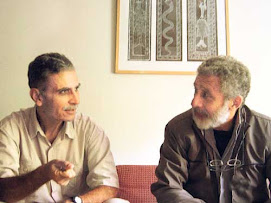
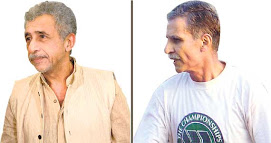



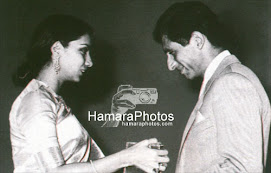
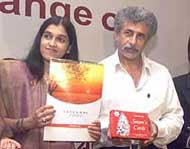










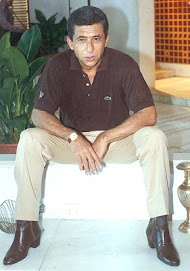


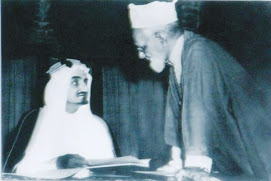

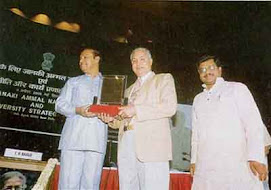
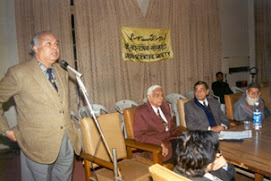
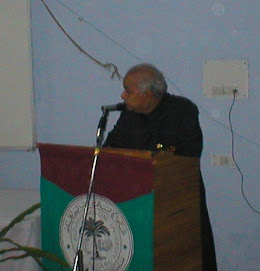














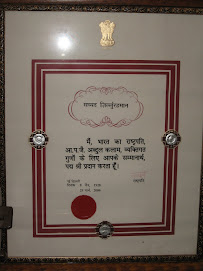
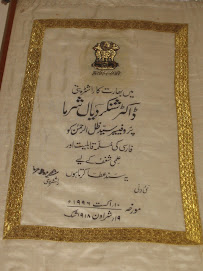



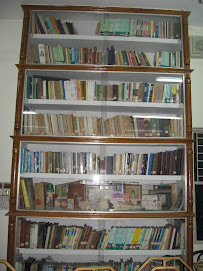
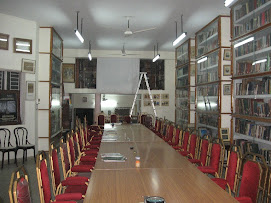
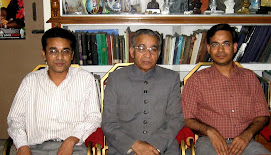
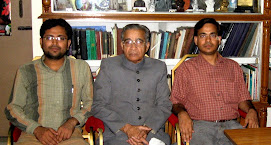




































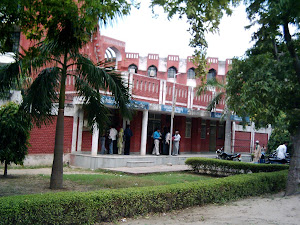
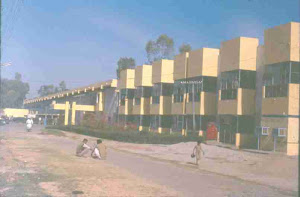


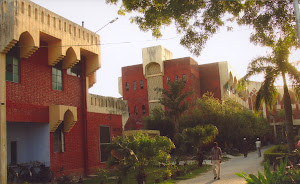
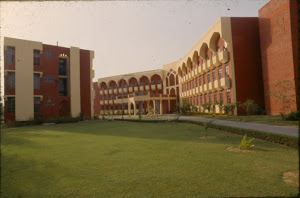





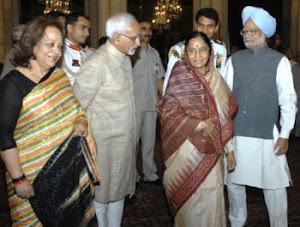
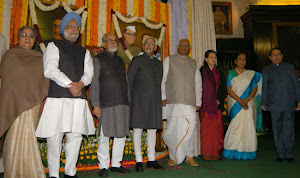
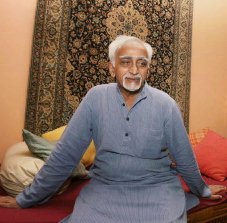
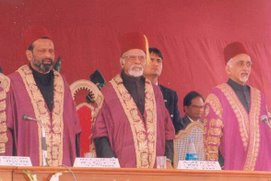

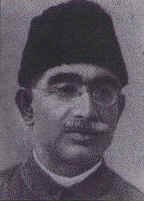




























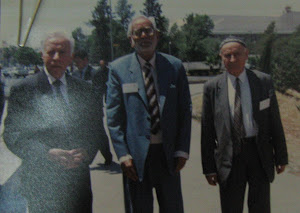







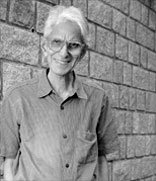






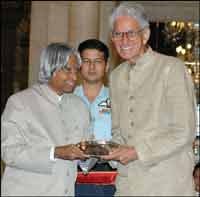



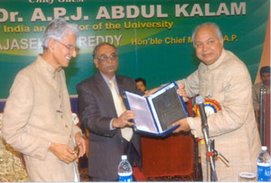

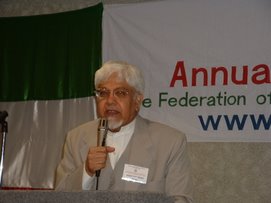
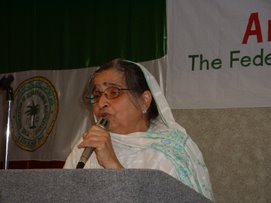
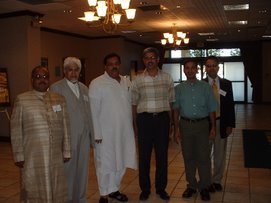
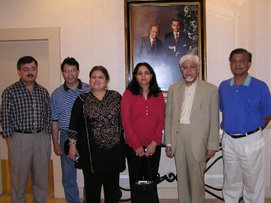




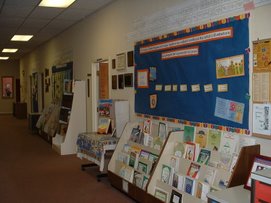



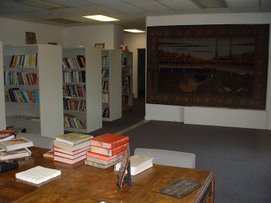

No comments:
Post a Comment